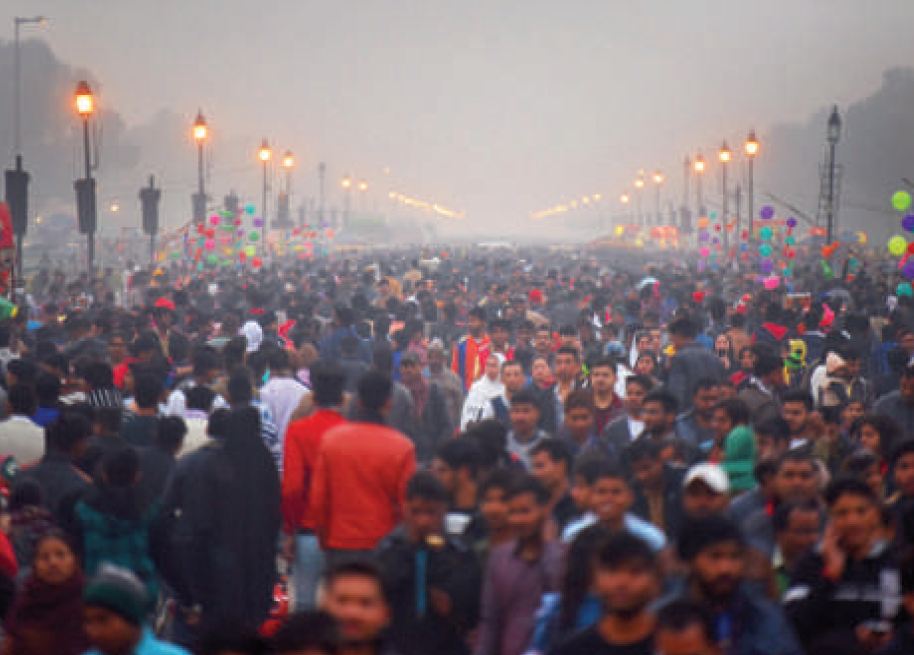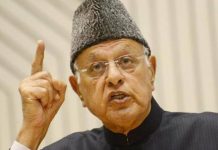 When Chief Justice S A Bobde quoted Mahatma Gandhi, saying the exercise of rights depends on one’s sense of duty and “real rights are a result of performance of duty”, he raised a very pertinent issue and added that real rights are a result of performance of duty.
When Chief Justice S A Bobde quoted Mahatma Gandhi, saying the exercise of rights depends on one’s sense of duty and “real rights are a result of performance of duty”, he raised a very pertinent issue and added that real rights are a result of performance of duty.
This report by Tehelka Bureau explains how rights and duties are closely related and cannot be separated from one another and as such both go side by side. In fact, these are the two sides of the same coin. If the state gives the right to life to a citizen, it also imposes an obligation on him to not to expose his life to dangers, as well as to respect the life of others.
If one has a right to work and earn, it is also one’s duty to recognize the same right of others. Rights can be enjoyed only in the world of duties. For every right there is corresponding duty. When the people fail to discharge their duties properly, the rights become meaningless. “One can enjoy one’s rights only if the others allow one to do the same. If one has the right to life and it is the duty of others to respect one’s life and not to cause any harm to one.”
Rights are not the monopoly of a single individual. Everybody gets these equally. This means that “others also have the same rights which one has, and it is one’s duty to see that others also enjoy their rights.” Laski has rightly said that one man’s right is also his duty. It is, therefore, one’s duty to respect the rights of others as well as the duty to use one’s rights in the interest of society. Rights originate in society. Therefore, while enjoying rights, we must always try to promote social interest. It is the duty of every one of us to use our rights for promoting the welfare of the society as a whole.
In the case of State of Rajasthan vs Union of India 1978 SCR (1)1, the Supreme Court stated that “Legal rights in the strict sense are correlatives of legal duties and legal rights are defined as the interests which the law protects by imposing duties on other persons. But the legal right in the strict sense means right is the immunity from the legal power of another. Immunity is no subjection at all”.
Since the state protects and enforces rights, it also becomes the duty of all citizens to be loyal to the state. It is their duty to obey the laws of the state and to pay taxes honestly. Citizens should always be ready to defend the state. Thus a citizen has both Rights and Duties. He enjoys rights and performs his duties. Rights and Duties are the two sides of the same coin. There was a time when some parts of the Constitution of India were described as “pious wishes” not having teeth enough to be enforceable. Initially, this category included the “Directives Principles of State Policy” in Part IV of the Constitution, but the march of constitutionalism has brought them into play in an effective manner and the projection is towards their greater involvement in the interpretation of the Fundamental Rights.
While there were fundamental rights of citizens and some non-citizens specifically enshrined in the Constitution, “Fundamental Duties” were not a part of the original Constitution. This part has been added by the Constitution (42nd Amendment) Act, 1976 in accordance with the recommendations of the Swaran Singh Committee. It brings our Constitution in line with Article 29(1) of the Universal Declaration of Human Rights and the Constitutions of Japan, China, USSR.
In one respect, the legal utility of the Fundamental Duties is similar to that of the Directives as they stood in the Constitution of 1949. While the Directives were addressed to the State, so are the Duties addressed to the citizen. The citizen is expected to be his own monitor while exercising and enforcing his fundamental rights, remembering that he owes the duties specified in Article 51A to the State and that if he does not care for the duties he should not deserve the rights.
For instance, a person who burns the Constitution cannot assert that the meeting or assembly at which it was burnt by way of demonstration against the Government should be protected by the freedom of expression or assembly guaranteed by Article 19. Of course, the “duty” as such is not legally enforceable in courts; but if the State makes a law to prohibit any act in violation of any of the duties, courts would uphold that as a reasonable restriction on the relevant fundamental right just as they did uphold any law implementing a Directive Principle.
It would be useful to refer to the observations of the Supreme Court made prior to the insertion of Article 51A: “It is a fallacy to think that under our Constitution there are only rights and no duties. The provisions in Part IV enable the legislatures to impose various duties on the citizens. The mandate of our Constitution is to build a welfare society and that object may be achieved to the extent the directive Principles are implemented by legislation.”
If so, in determining the constitutionality of such laws, when enacted, the court should have regard to the Directives as well as the Duties along with the Rights. Courts may also look at the Duties while interpreting equivocal statutes which admit of two constructions and also uphold the constitutionality of a statute, the object of which is in consonance with a provision in Art. 51A. However, the Duties are not enforceable; and if the State seeks to promote any Duty, e.g., that under Cl. (j), that can be done only through methods in consonance with the Constitution.
Since the Duties are not addressed to the State, a citizen cannot claim that he must be properly equipped by the State so that he may perform his Duties. But the Supreme Court has issued directions to the States, having regard to Art. 51A(g).
Duties, though not enforceable by a writ of the court, yet provide a valuable guide to interpretation of constitutional and legal issues. In case of doubt or choice, people’s wish as manifested through Art.51A, can serve as a guide not only for resolving the issue but also for moulding the relief by courts. Constitutional enactment of Duties, if it has to have any meaning, must be used by courts as a “tool to tab, even a taboo”, on State action drifting away from constitutional values.
 In view of the Duties imposed on the citizens, the Supreme Court has held that it is a duty of the Central Government to take a number of steps to make this provision effective and directed the Government to ask all educational institutions to give weekly lessons in the first ten classes relating to protection and improvement of the natural environment including forests, lakes, rivers and wildlife, to get textbooks written for this purpose and to distribute them free, to introduce short-term courses for training teachers of this subject and not only the Central Government but the State Governments and local authorities to introduce cleanliness weeks when all citizens, including members of the Executive, the legislature and the Judiciary, should render free personal service to keep their local areas free from pollution of land, water and air. By giving it the status of a fundamental duty, one of the objects sought to be achieved by Parliament is to ensure that the spirit of Arts. 48 and 48A is honoured as a fundamental duty.
In view of the Duties imposed on the citizens, the Supreme Court has held that it is a duty of the Central Government to take a number of steps to make this provision effective and directed the Government to ask all educational institutions to give weekly lessons in the first ten classes relating to protection and improvement of the natural environment including forests, lakes, rivers and wildlife, to get textbooks written for this purpose and to distribute them free, to introduce short-term courses for training teachers of this subject and not only the Central Government but the State Governments and local authorities to introduce cleanliness weeks when all citizens, including members of the Executive, the legislature and the Judiciary, should render free personal service to keep their local areas free from pollution of land, water and air. By giving it the status of a fundamental duty, one of the objects sought to be achieved by Parliament is to ensure that the spirit of Arts. 48 and 48A is honoured as a fundamental duty.
The Parliament availed the opportunity provided by the Constitution (42nd Amendments) Act, 1976 to improve the manifestation of the objects in Arts. 48 and 48A. While Art.48A speaks of “environment”, Art. 51A(g) employs the expression “the natural environment” and includes therein “forests, lakes, rivers and wildlife”. While Art.48 provides for “cows and calves and other milch and draught cattle”, Art. 51A(g) enjoins it as a fundamental duty of every citizen “to have compassion for living creatures”. Art. 51A(g) and (h) are the magna carta of animal rights. Particular emphasis has been made to the expression “humanism” which has a number of meanings but increasingly designates as an inclusive sensibility for our species.
Humanism also means to understand benevolence, compassion, mercy, etc. The objectives under Arts. 41, 51A(h) and (j) can be achieved or ensured only by means of education. Education is a national wealth which must be distributed equally and widely in the interest of creating an egalitarian society to enable the country to rise high and face global competition.
The Fundamental Duties are not made enforceable by a writ of court as the Fundamental Rights are, but it cannot be lost sight of that “duties” in Part IVA, Art.51 are prefixed by the same word “fundamental” which was prefixed by the fathers of the Constitution to “rights” in Part III. Every citizen is fundamentally obligated to develop a scientific temper and humanism. He is duty-bound to strive towards excellence in all spheres of individual and collective activity so that the nation constantly rises to higher levels of endeavour and achievements.
The State is all citizens placed together; and hence, though Art.51A does not expressly cast any fundamental duty on the State, the fact remains that every citizen’s duty is the collective duty of the State. Any reservation, apart from being sustainable on the constitutional anvil, must also be reasonable to be permissible. In assessing the reasonability, a factor to be taken into consideration would be whether the character and quantum of reservation would stall or accelerate achieving the ultimate goal of excellence enabling the nation to constantly rise to higher levels.
It was during the “Emergency” that the “Fundamental Duties” chapter was inserted into the Constitution in 1976. This is one of the main constructive amendments. It is now for the judiciary to blend the different rights and duties so that we evolve into a balanced and civilised society. This will also make the citizens realise that every right has a corresponding duty; and the duty ought to have a corresponding right. These checks and balances shall enable us to emerge with a more effective and meaningful form of democracy. This aspect has been neglected and needs to be pursued with vigour. This calls for the involvement of all sections of our society.
Recently, the terminologies like ‘Duties of citizens’ and the ‘anti-national’ (emanating from violation of these duties) have become the buzzwords of the political landscape. In a constitutional democracy, the State provides rights and lays down duties for the citizenry, so that society can peacefully co-exist. However, sometimes State imposes such duties on its citizenry that infringes the rights of the marginalised sections of society.
Thus, the major concern lies in the language of duties which is vague (as their interpretation is left at the discretion of the State). This makes ‘duties’ of the citizenry prone to be misused as a tool to impose the will of the State or the social majority on vulnerable sections. Rights and Duties Go Hand in Hand.
Mahatma Gandhi in Hind Swaraj observed that “Real rights are a result of the performance of duty”. Rights and duties are closely related and cannot be separated from one another. For every right, there is a corresponding duty. The State protects and enforces rights and it is the duty of all citizens to be loyal to the state. Thus a citizen has both Rights and Duties.
According to Harold Laski, one man’s right is also his duty. For example, if the State gives the right to life to a citizen, it also imposes an obligation on him to not to expose his life to dangers, as well as to respect the life of others. Indian Constitution provides its citizens with the Fundamental Rights and lists the Fundamental Duties to be followed by them. The Constitution covers a broad spectrum of domains to protect the rights of the common man by introducing six rights as Fundamental Rights (Part III of the constitution).
Similarly, the Fundamental Duties are also emphasised upon by the Constitution (Part IVA of the constitution). As citizens, there exists a wide range of duties that bind us in everyday life. These duties are owed both to the state and to individuals. There is a legal duty to pay taxes, to refrain from committing violence against fellow-citizens, and to follow other laws that Parliament has enacted. Breach of these legal duties triggers financial consequences (fines), or punitive measures like imprisonment. Duties follow a simple logic that, peaceful co-existence requires a degree of self-sacrifice, and that if necessary, this must be enforced through the set of sanctions.
Rights are formulated to ascertain twin principles viz. Anti-dehumanisation and Anti-hierarchy. In India, this can be reflected in a chapter on Fundamental Rights in the constitution. Framers of the Indian Constitution while deliberating on Fundamental Rights were of the view that every human being should have access to basic dignity and equality that cannot be taken away the State. The necessity for Fundamental Rights in India originated from the experiences under the colonial regime where Indians had been treated as subjects. For example, the colonial government declared some group of people as Criminal Tribes, who were treated as less than human.
Indian society has been divided on the lines gender, caste and religion. Fundamental Rights, at a basic level, ensure the protection of all the citizens, not only from the State but from the social majorities as well. For example, through guarantees against forced labour, against “untouchability”, against discriminatory access to public spaces, and others, fundamental rights sought to bring a transformation in the Indian society. Does this suggest that duties are unimportant?
As indicated above, duties exist in every sphere of society. However, it is the language of duties that can play an important role in a society like India that continues to be divided and
unequal. Any duty imposed upon the citizens must comply with due process of law. The concept of ‘due process of law’ holds that no person shall be deprived of life, liberty or property except in accordance with the explicit provisions of law and with due regard to his rights.
Without the moral compass of rights and their place in the transformative constitutional scheme, the language of duties can lead to unpleasant consequences. A good example of this is a Supreme Court judgment from the early 1980s, which upheld the differential treatment of male and female flight attendants on the ground that women had a “duty” to ensure the “good upbringing of children” and to ensure the success of the “family planning program” for the country. In this light, it is always critical to remember Dr B.R. Ambedkar’s words in the Constituent Assembly that the fundamental unit of the Constitution remains the individual. Interpretation of ‘Duties’ and the debate around it should include the duties of those with power. Those with power should not use it to exploit those from whom they wield it. It is only after guarantee to all the full sum of humanity, dignity, equality, and freedom promised by the Constitution, that we can ask of them to do their duty. It is only after ensuring the humanity, dignity, equality, and freedom for all, as promised by the Constitution, that the burden of ‘following the duties’ should be imposed on the citizens.
In 1947 Julian Huxley, English evolutionary theorist and director-general of UNESCO, wrote Mohandas Gandhi to ask him to contribute an essay to a collection of philosophical reflections on human rights. Gandhi declined. “I learnt from my illiterate but wise mother,” he replied, “that all rights to be deserved and preserved came from duty well done. Thus the very right to live accrues to us only when we do the duty of citizenship of the world.”
As far back as Hind Swaraj (1909), his masterpiece in political theory, Gandhi had bemoaned “the farce of everybody wanting and insisting on . . . rights, nobody thinking of . . . duty.” And during World War II, when another Englishman, H. G. Wells, solicited Gandhi’s support for his bill of rights defining war aims, the Mahatma recommended that Wells write a cosmopolitan charter of duties instead — a statement of what citizens of the world owe to each other.
A few months after his exchange with Huxley, Gandhi was dead. Assassinated in January 1948, he did not live to see the Universal Declaration of Human Rights, passed by the United Nations General Assembly in December of the same year. In our age, in which human rights politics have finally come into their own, his emphasis on duties looks downright idiosyncratic. Of course, the human rights revolution of the past few decades itself means that international law imposes a wide range of duties. Every right implies corresponding or “correlative” duties in order to see that right respected, protected, or fulfilled.
Human rights wither without a language of duties. More important, even the most generous attempts to protect the political and socioeconomic rights of individuals leave some duties of individuals to their own states and all humanity out of account, as well as some duties of states to one another.
After all, not all duties that morality might impose follow from individual rights. If states have a duty to provide housing and food, do individuals have a duty to pay taxes to ensure it can do so? If inequality gallops locally and globally, is it best to frame the problem as an indirect violation of a right — there being no right to fair distribution — or as a rationale to impose on individuals, corporations, and states a duty to contribute to a just society? If the planet burns, is the remedy a personal right to a healthy environment or a collective duty to preserve the earth for future generations?
It turns out the West — and possibly the world at large — historically cultivated robust theories not only of governmental obligations toward individual rights, but also of individuals toward one another, citizens toward their governments, and rich states toward poor ones. Duties are not without their own baggage. But, compared to the well-excavated history of rights claims, the lesser-known history of duties provides a valuable starting point as we attend to urgent purposes in the world today.
We are now very familiar with the claim that all humans everywhere have rights. But we are much less familiar with the notion that rights are protected by the fulfillment of duties. Thirty years ago, when the human rights movement was in its infancy, philosopher Onora O’Neill commented, “Although serious writing on human rights acknowledges that any right must entail correlative obligations, we find no Universal Declaration of Human Duties, and no international Human Obligations Movements.”
For millennia, duties — or responsibilities, as we are more apt to call them now — were the main commitment of religious ethics and thus the centerpiece of the history of ethical culture. “Judaism knows not rights but duties,” founder of human rights law Louis Henkin explained, “and at bottom, all duties are to God. (If every duty has a correlative right, the right must be said to be in God!)” And in spite of its critique of Jewish “legalism,” Christianity, like Islam, similarly holds that the substance of moral teachings is some set of divinely decreed obligations, whether to God or to fellow human beings.
In response to the hegemony of ethical schools, religious traditions, and political authorities emphasizing obligations within stark hierarchies, a few Enlightenment political thinkers asserted the supremacy of rights. The goal of this shift toward rights was escape from the confinement of duty, and that was no doubt a good thing. Liberal insistence on freedom from God’s enforcers, tradition’s weight, and the state’s prerogatives was a significant advance in history. The question was, after individual freedoms had been proclaimed and won, what would happen to the earlier public emphasis on duties? Would it simply disappear?
This omission of duties might have grave consequences for rights protection itself. Consider that, from their president on down, few Americans seem to believe that a right to be free from torture might translate into a duty to prevent and punish torture. Unfortunately, while there has been great interest in the history of rights, no one has attempted to write the history of human duties. In particular, there is now a whole canon on the history of the internationalization of human rights since the middle of the twentieth century. But, to the best of my knowledge, there is not a single book on the history of duties, even though there clearly have been precedents, including Gandhi’s, for a theory of obligations that would accrue not just at the level of community or state but at that of the globe as a whole.
Mazzini was not a great philosopher, but his global influence was such that his ethics deserve a look. (Gandhi mentioned The Duties of Man as one of the texts that most inspired his own thought.) The priority accorded individual entitlements, Mazzini believed, risked prioritizing the hedonistic “pursuit of happiness” over other goods, neglecting both higher aims and the enacted communal fellowship necessary to achieve them. With the theory of happiness as the primary aim of existence, we shall only produce egoistic men. We have therefore to find a principle . . . which shall guide men toward their own improvement, teach them constancy and self-sacrifice, and unite them with their fellow men . . . . And this principle is Duty. Thus, he set himself the task of renovating the time-honoured centrality of duties. Though Mazzini is best remembered for his nationalism, he was also one of the earliest cosmopolitans, who believed in the eventual unification of humanity.
I merely say that such rights can only exist as a consequence of duties fulfilled, and that we must begin with the latter in order to achieve the former. . . . Hence, when you hear those who preach the necessity of a social transformation declare that they can accomplish it by invoking only your rights, be grateful to them for their good intentions, but distrustful of the outcome. Mazzini found in duties the critical tool to immunize the individual liberty consecrated by rights theory from the libertarian heresy that he found so destructive. “The sacred idea of Liberty has recently been perverted by some deeply flawed doctrines,” he noted.
Because interdependence, for Mazzini, was the necessary precursor to social improvement, his doctrine of duties was exceptionally broad — irreducible, especially, to the state’s duties to respect the rights of its citizens. Rather, duties to one another and to all humanity put the relationship between individual rights and the state in its broader setting. “Workingmen, brothers — understand me well. When I say that the consciousness of your rights will never suffice to produce an important and lasting progress, I do not ask you to renounce those rights,” Mazzini assured his reader.
The argument was thus twofold. First, if people have rights based on their innate features, they have innate duties too. Second, the collective setting of individual freedom makes the harmony of social and individual purposes a policy challenge. The presence of both purposes should not be an occasion for asserting the supremacy of individual freedom over the collective good and playing the trump card of rights to minimize the state.
Human rights themselves wither when their advocates fail to cross the border into the language of duty; insofar as compliance with norms on paper is sought, the bearers of duties have to be identified and compelled to assume their burden. But duties may have an even larger role to play than simply completing the circuit of rights fulfillment. Though we face environmental catastrophe and the inequities of neo-liberalism, few think to pick up the traces of Mazzini’s and Gandhi’s cosmopolitan responsibility, which might help to confront these global-scale menaces.
From a different angle, a sense of duty is also implied by the push for “corporate social responsibility.” Some worry that these efforts are oversold, window-dressing for profit won at the expense of other rights violations by poorly regulated companies. Such anxieties speak to the need for duties that go beyond insurance against the worst abuses; they must serve the pursuit of economic justice, not simply help businesses to advertise their ethical propriety.
There are good reasons, then, to ask what a history of human duties would look like, so we can decide whether and how to re-establish duties now. There will always be debate both about the source and substance of such duties. But this is no more true of duties than it is of the rights framework now impressively entrenched — along with the historical work that serves to vindicate it. As with rights, so with duties: reclaiming the history of duties is a first step toward the thinking and practice that might justifiably lead to reclaiming duties themselves.











